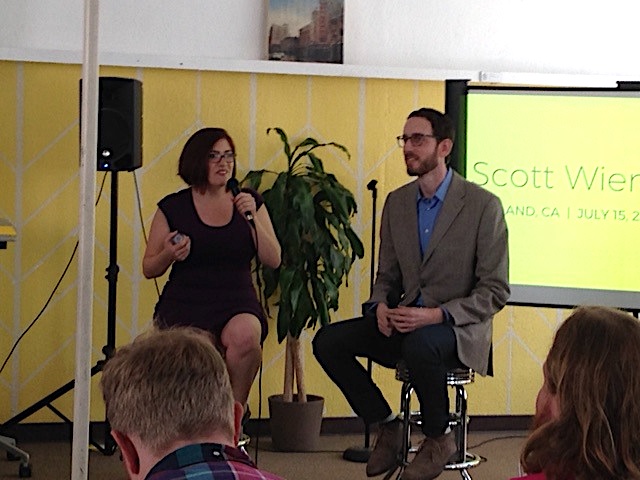Two housing bills sponsored or co-sponsored by Sen. Scott Wiener are wildly unpopular among likely California voters, a new poll shows.
The survey by David Binder and Associates, a nationally respected public opinion firm, surveyed 600 voters, 88 percent of whom said they are certain to vote in the recall election of Gov. Gain Newsom.
Since Republicans are more motivated than Democrats to vote, the survey may skew a bit conservative.

But the result are still pretty clear:
Voters opposed both SB 9 and SB 10 by more than 2-1.
The survey is not good news for the current governor (who has been supportive of Wiener’s efforts to eliminate local control of planning): 54 percent of the respondents said that the state is on the “wrong track,” and only 36 percent said things are going well. Part of that is clearly the rebound of the Delta Variant of COVID.
The poll asked a fairly neutral question about the two measures, and the results were similar: 63 percent opposed SB9, and 27 percent supported it. SB 10 had 67 no, and 23 yes.
Then the Binder folks dove in a bit deeper. A full 67 percent said they thought the bills would have a negative effect on neighborhoods—and 39 percent said the impact on housing affordability would be negative, with only 28 percent saying it would be positive.
More: Only 12 percent of respondents said California needs more market-rate housing, and 61 percent said the state needs more affordable housing and housing for homeless people.
The poll showed overwhelming concern about homelessness (86 percent), the lack of affordable housing (73 percent), and renters being priced out of their neighborhoods (70 percent).
The survey tested some arguments, starting with this one:
California’s housing shortage is driving up housing costs for everyone. Allowing more market-rate apartments to meet the demand will help bring the state’s housing market back into balance. That will drive down housing costs for middle and low-income residents.
Guess what? Only 28 percent of the respondents found that convincing.
The influence of the Apartment Owners Association, the Chamber of Commerce, and California Yimby is pretty weak, too: The fact that the CAA supports both bills meant that 46 percent would be more likely to oppose, and only 16 percent more likely to support. The numbers were 49-19 for the Chamber and 40-16 for CA Yimby.
There were more homeowners than renters in the survey, although 31 percent described themselves as “progressive or liberal,” 29 percent as “moderate” and only 24 percent as “conservative.”
The clear majority were Democrats—58 percent voted for Biden (slightly lower than the state as a whole) and 27 were Trump supporters (again, lower than the state as a whole.)
In the recall era, there is a warning for the governor: 46 percent said they would favor Newsom less if he supported these bills—and 14 percent said they would like him better.
It’s just a poll, and the state Legislature in general cares a lot more about what the real-estate industry wants than what the voters want. But it’s a signal that there’s real opposition to the Yimby/Wiener approach—and it’s not just from white homeowners in single-family neighborhoods who are worried about their property values. It’s from people who don’t believe that more market-rate housing will solve the crisis.
And it comes after a long barrage of news-media stories saying that the market will solve the problem.







